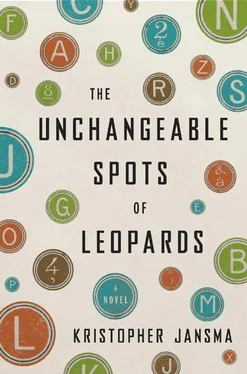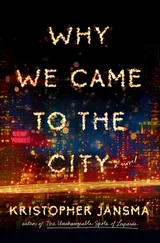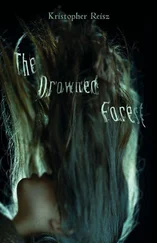“Come on,” I say, “we’ve got to get you to a doctor.”
Jeffrey doesn’t seem particularly enamored of this solution, and he argues loudly even as he lets me get an arm around him and we hoist each other up. When had we become old men?
“You’d better not try to steal any of it,” he warns. “Those damned elves keep coming in here, changing things. Well, I told them — Jeffrey Oakes doesn’t write by committee. This isn’t some Hollywood screenplay here. You don’t get producers credits just for bringing me weak coffee and filthy muffins every morning.”
I smile a little wider at the familiar, pleasant sound of his babbling. As much as it concerns me, I know that he has been this way before, and that he is not always this way. If he can get better then we both can.
And, now that he mentions it, I wonder who has been bringing the muffins and coffee. Not Franklin W. Zaff — that much I am sure of. Maybe Einar wasn’t so wrong about that mischievous force.
Soon we’ll be lodged in a French château, surrounded by withered grapevines that will be green in good time. And I keep thinking I’d like to go home myself.
“Time to return to the lands of mothers and slug poops,” I say.
“I don’t mean to alarm you,” Jeffrey says, “but you’re speaking gibberish.”
Jeffrey and I brace against each other, and we head for the doorway, tripping over empty bottles and still more stacks of Icelandic books, which I swear weren’t there moments before.
I ask, “Why is it that these people can’t stop writing all these books? You’d think they’d run out of things to say about this place.”
What I mean to ask is, how it is that they can write so many and I can’t seem to manage even one?
“‘A book must be the ax for the frozen sea within us,’” Jeffrey says sagely.
“That’s lovely,” I say. And I mean it.
“Kafka,” he says proudly.
“You wouldn’t really expect that. From him.”
“No,” Jeffrey agrees, looking rather blissed all of a sudden.
Through the window, beyond the mirrors, I can still see the warm glow of Yoko’s light. It really is a magnificent thing. A pillar that climbs to the clouds, in honor of a great love lost. Now it seems like the only thing that could possibly have been built. And that it could have been built only here, in this void, where nothingness was waiting to be made into something.
As we slowly descend the stairs, words begin ordering themselves in my head. I can see — clearly — that which is not there at all. A woman, sitting in front of an array of mirrors on her wedding day, thinking about waking in darkness that morning and not knowing just yet where she is. And not wanting to know, at first. And then suddenly it is as if I can hear her voice in my own head, and it takes all I have to not run back up to Jeffrey’s typewriter and let it out. It’s a voice I haven’t heard in a long, long time, but I feel sure that it isn’t going away now. I hobble a little faster toward the exit. I think that I know how to proceed.
Do not trouble yourself much to get new things, whether clothes or friends. Turn the old; return to them. Things do not change; we change.
— HENRY DAVID THOREAU, WALDEN
Jeffrey sits in the window wearing a white waffle-woven bathrobe embroidered with the elegant logo of the Hotel Luxembourg. His left hand moves lazily out in the fifth-story air, as if conducting an invisible orchestra. His right hand pinches a cigarette, which he smokes fiercely while staring down at the statue of Grand Duke Guillaume II in the square below. Then Jeffrey looks back into the kitchenette, where I lean over a newspaper written in Luxembourgish, a language I frankly did not even know existed before we arrived.
“It’s just too… I mean, honestly . You know what I mean? Does it have to be quite so…? Just look at them all down there… ‘Oh… I’m blah blah blah. Don’t you think blah blah is so blah?’ ‘Yes, quite blah.’ God! You know what I’m saying?”
He tosses the lit cigarette across the hotel room, and it lands in the large empty fireplace, amid the butts of yesterday’s pack. His right hand traces a route through his gray hairs, down the freckled ridge of his ear, and then along the shoulder slope of robe to his pocket, where he fishes out his aluminum pack of Chancellor Treasurer cigarettes. He is hardly ever without one for more than a minute. He calls it his “sovereign addiction”—the only one remaining after obliterating pills, booze, and sex from his diet.
“What is it about this place? I don’t even know what we’re doing here.”
“You wanted to come,” I remind him. “You could have stayed with Pauline.”
An electric shudder runs through Jeffrey, and I know he is thinking back on the recuperative months we spent at the Oakes Reserve Vineyard in the Loire Valley — being ruthlessly picked over by his mother while doctors from all over Europe hemmed and hawed in the hallway.
“I keep having this nightmare,” he’d confessed as we’d strolled aimlessly down the still-frosted rows of vines. “They cut me up in my sleep and build a new Jeffrey out of aggregate parts. I come out half my size, with one lung, no liver, and a bird heart.”
In truth, they’d stuck him with acupuncture needles and fed him kale. They’d injected him with vitamin C and had him drink a gallon of raw milk daily. With each week that passed, Jeffrey did, indeed, appear a bit smaller and shorter of breath, but his antic scratching and midnight outbursts slowly diminished as well. His eyes no longer danced after things that no one else could see. This is when the gray came into his hair. This is when he began staring at his typewriter, never pressing a key.
I wasn’t surprised that, when my leg was finally fully healed and I told Jeffrey I was going to head into Luxembourg, he had his bags in the back of his father’s Renault before I’d even downloaded the maps. But that was days ago, and by now Jeffrey’s mood has swung right around again.
“I’m just saying, ” he gripes, lighting the new cigarette. “Who goes to Luxembourg? Everything about this place… is so… so perfectly… uhm … humph .”
That Jeffrey can’t quite put a finger on his issue with Luxembourg cannot, entirely, be blamed on writer’s block. I feel it, too. The trouble with Luxembourg is that you can’t quite figure out what it is trying to be exactly. Everywhere I look there are soaring parapets and medieval coats of arms. There are old men playing checkers on a folding table in the park below us and stone gargoyles on the ramparts above us. But even they seem a bit bored by it all. In Paris you could complain the Eiffel Tower was not as striking as you’d hoped. In Berlin the beer wouldn’t be worth the crowds. In London the fog could be thick but not hiding-Jack-the-Ripper thick. In all these places there were expectations, but in Luxembourg there were none. One might ask how, without any expectations, could anything be a letdown? But that was the thing — there was a delight in being let down that Jeffrey thrived on. Here it all just was , no better or worse than what we’d never imagined. And Jeffrey was floundering like a saltwater fish dropped into a pond. Everything looked right and yet he was steadily suffocating; all the poisons he’d long ago adapted to withstand were suddenly nowhere to be found.
“This is hopeless,” I announce, folding up the newspaper, having scanned each of its pages for any mention of the royal family. Though Luxembourg is smaller than Rhode Island and with half the population, it has been surprisingly difficult to locate one of the duchy’s best-known residents. And then again, she’s everywhere. It was big news when the duke’s fifth son married an American actress — the biggest news in Luxembourg in a decade. After nine years, they still sell DVDs of the ceremony at every newsstand; her face remains printed onto coffee mugs at the tourist gift shops. Down in the lobby of our hotel there is a display filled with plates commemorating the royal wedding. Yet the princess herself has thus far eluded us.
Читать дальше











